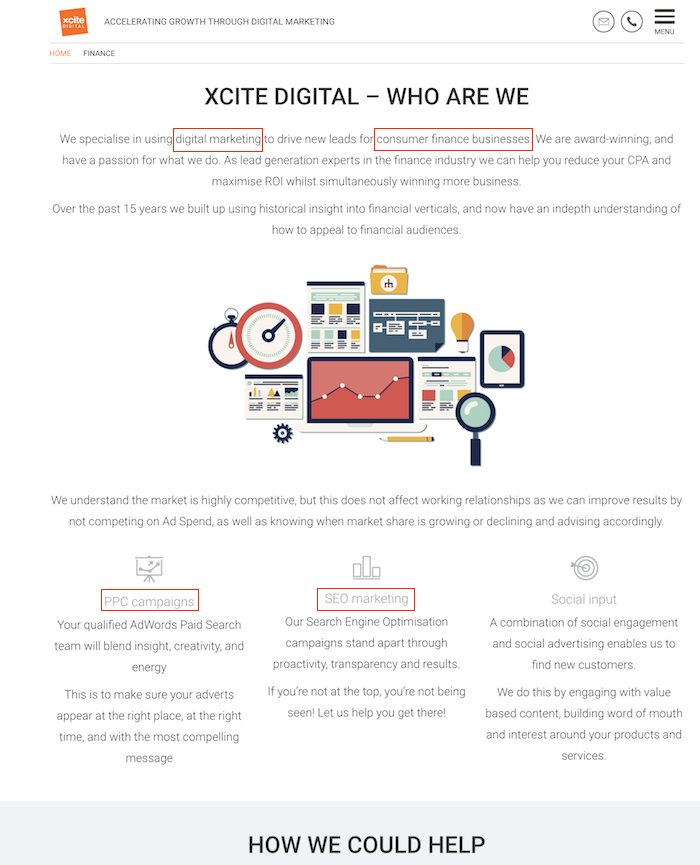Digital marketing is an increasingly relentless pursuit. No sooner do we think we have nailed it and know how to achieve success in one particular area than something else changes. The old circus trick of spinning plates seems horribly and constantly familiar.
Whether you run your own business, are a marketer for a corporation, or a specialist in a digital marketing agency, if you are using paid search advertising then one of the many things you need to keep up to date is your understanding of quality scores.
According to Google “Quality Score is an estimate of the quality of your ads, keywords, and landing pages.” Your quality score is represented as a number between 1 and 10; the higher your quality score, the better your ads will perform.

So what can you do to increase your Quality Score? Google determines your Quality Score by evaluating three main factors and rated each of them as below average, average, or above average, :
Expected CTR (Click Through Rate)
Relevancy
Landing page
Let’s look at each of these in turn:
1) Expected CTR
Google AdWords now uses an algorithm to predict how many people will click on your ad. Obviously the higher that number, the better your Quality Score.

CTR is one of the most important aspects of Quality Qcore because even if you get everything else right, if people fail to click on your ads then not only is this bad news for your campaign but also your Quality Score will take a hit. One way you can greatly improve your CTR is by making sure that your keywords are relevant…
2) Relevancy
It is important to keep your ads relevant to the search term(s) that you are running. As part of this, effective keyword research is vital to a successful campaign and healthy quality score. You need to constantly be seeking highly relevant keywords to add to your campaigns, including unique long-tail opportunities that can really boost your overall traffic.

Also remember to add negative keywords so that you exclude irrelevant search terms that could waste your budget and reduce your CTR. If you need help thinking of more keywords then we recommend trying Google’s Keyword Planner to help you come up with additional keywords to add to that all important list.
Not only do you need the right keywords but you need to organise them effectively. Split them into tightly organised groups so that they can easily be linked to specific campaigns. Keyword grouping is an essential skill to develop for successful PPC and can greatly increase your potential for achieving high quality scores.
3) Landing Page
It is really important that your landing page is relevant and has a clear and direct connection with your ad groups. This ensures that you are providing a consistent experience for visitors, from keyword to conversion. As part of your Quality Score Google will evaluate your landing page from a user experience perspective.
You should therefore endeavour to optimise landing pages and make sure that the content reflects the ad. Use keywords in the title and meta descriptions of the page and also in your content and subheadings. You also need to ensure that your page is quick to load and responsive on any device whether desktop, laptop, tablet or smartphone.

Make sure you test your landing page thoroughly. Why not run it through tools such as Google Page Speed Insights and the Google Mobile-Friendly test? Then if the tests come up with low scores you can make improvements to your page. But don’t just rely on automated tools; also test the page manually so that you do not miss anything. Always be asking: always be testing.
Hopefully the above tips will help you to increase your quality score, but just be careful that quality scores alone do not become the sole objective of your digital marketing strategy. The ideal is that if you are doing all the above things right to improve your campaign performance then your quality score should increase naturally, without having to be artificially manipulated as a separate task.
The key thing is to develop intuition as to what will help your quality score and build it into every aspect of your digital marketing strategy, rather than adding it on as an afterthought.
If you’d like more information on PPC or would like us to perform a review of your current AdWords campaign(s) then please get in touch; we’re here to help!

